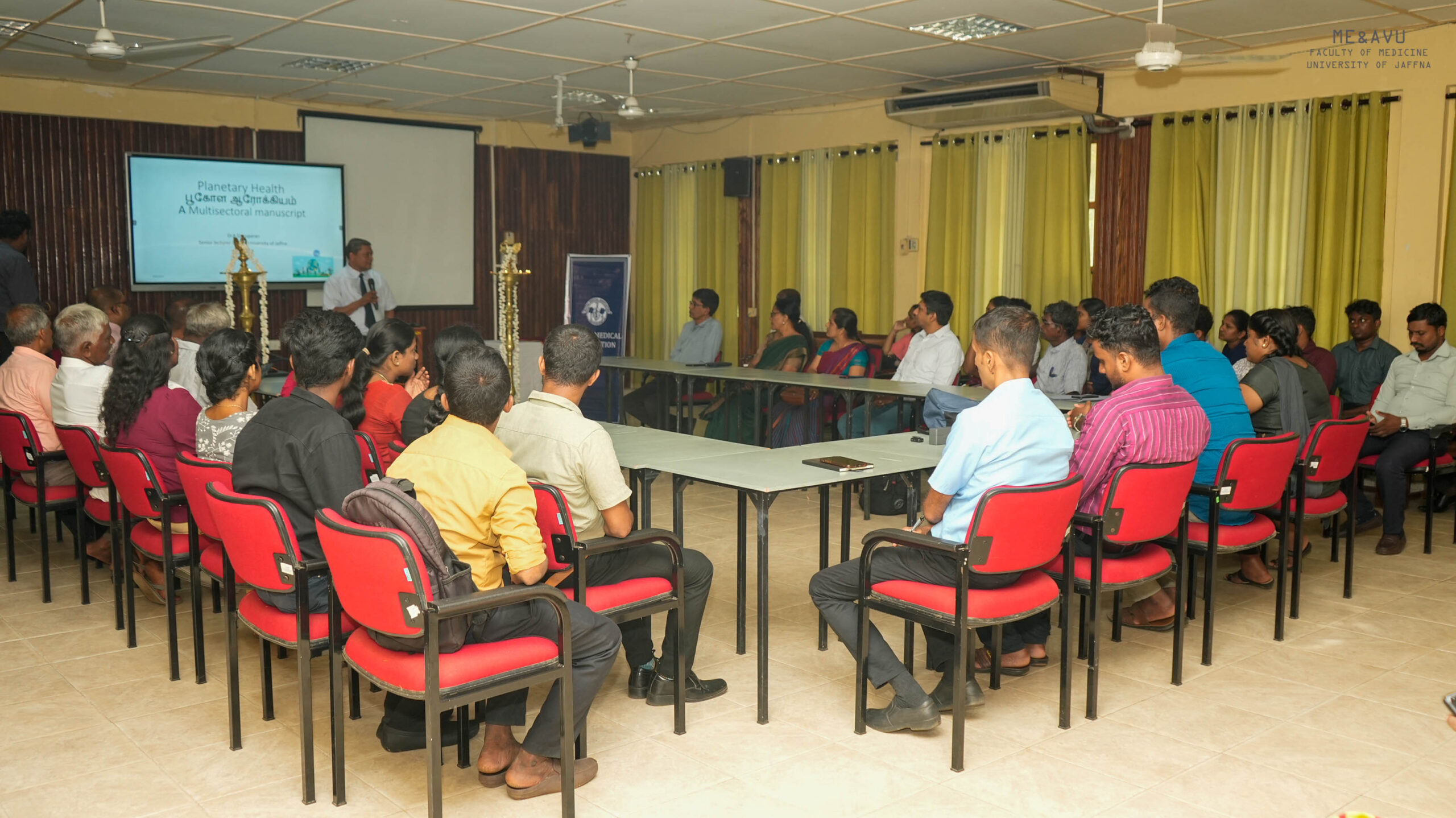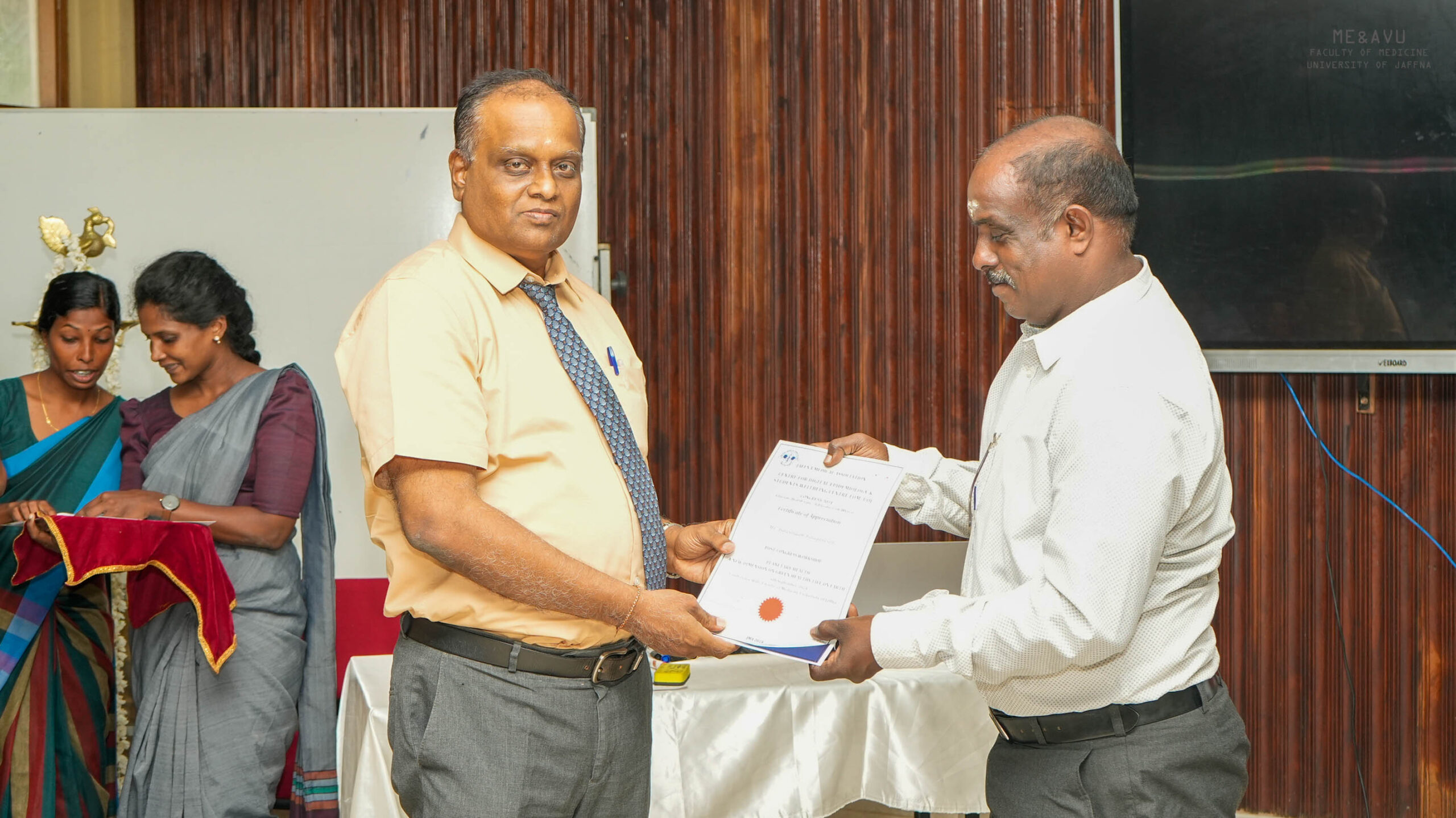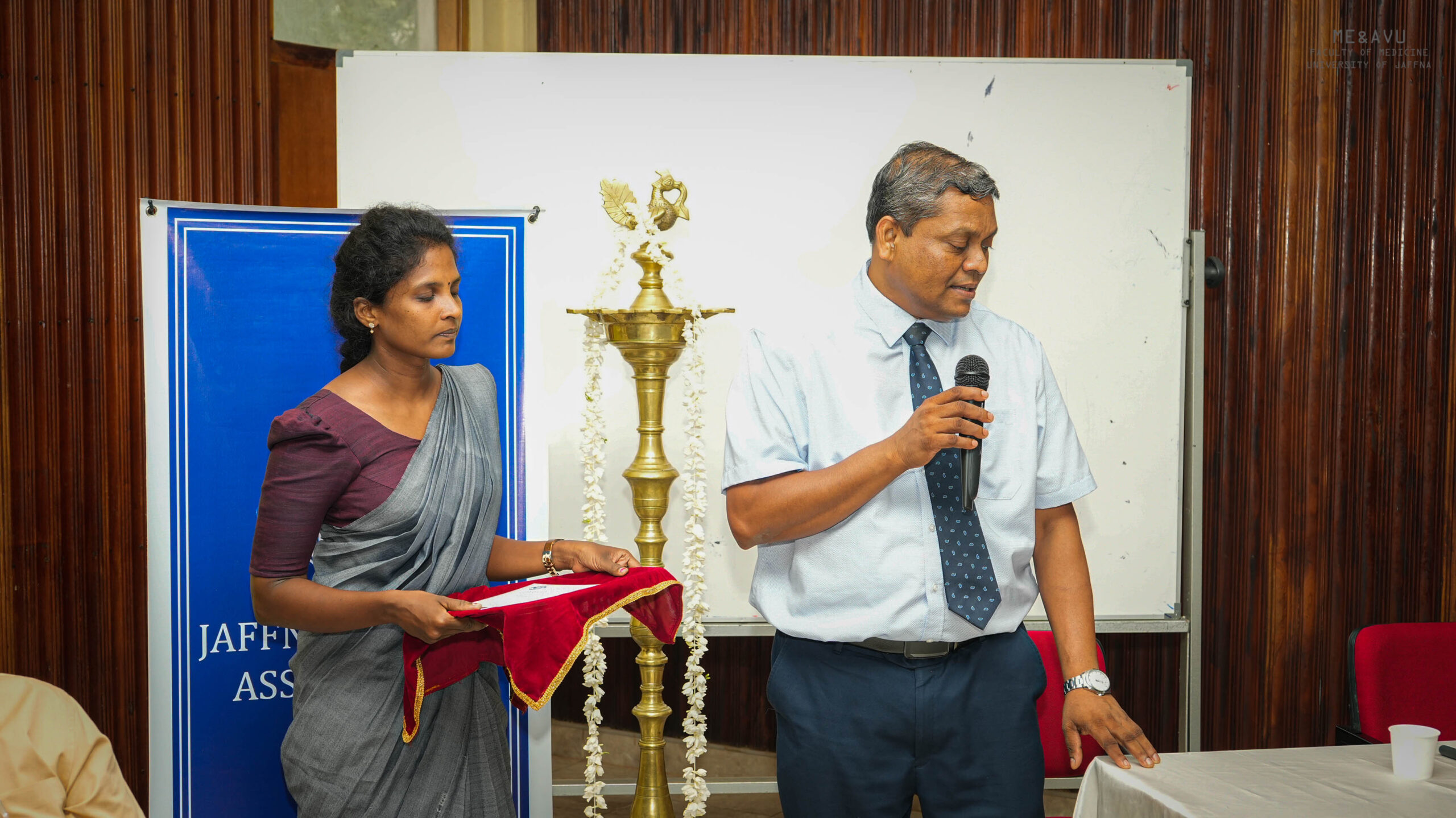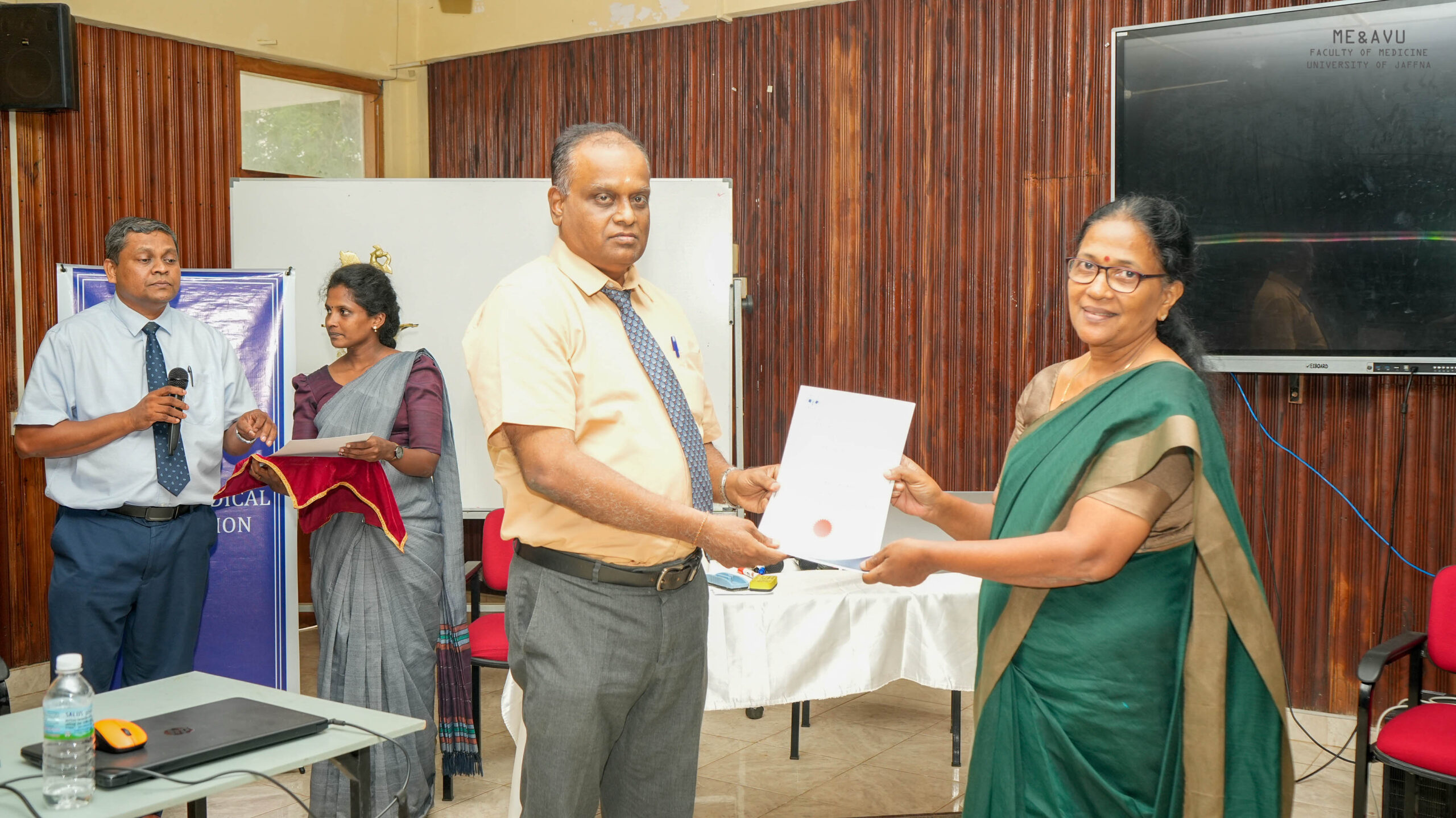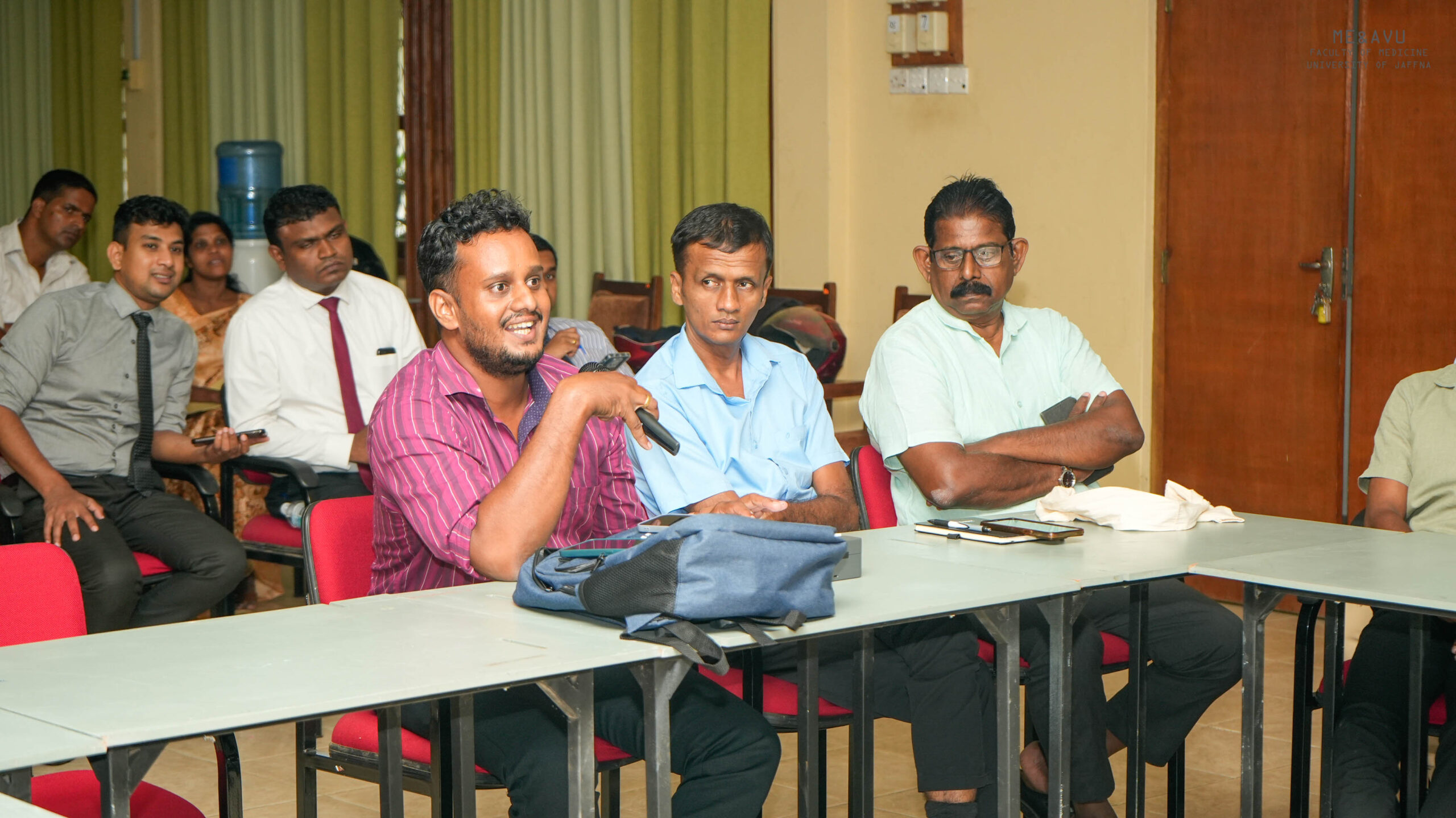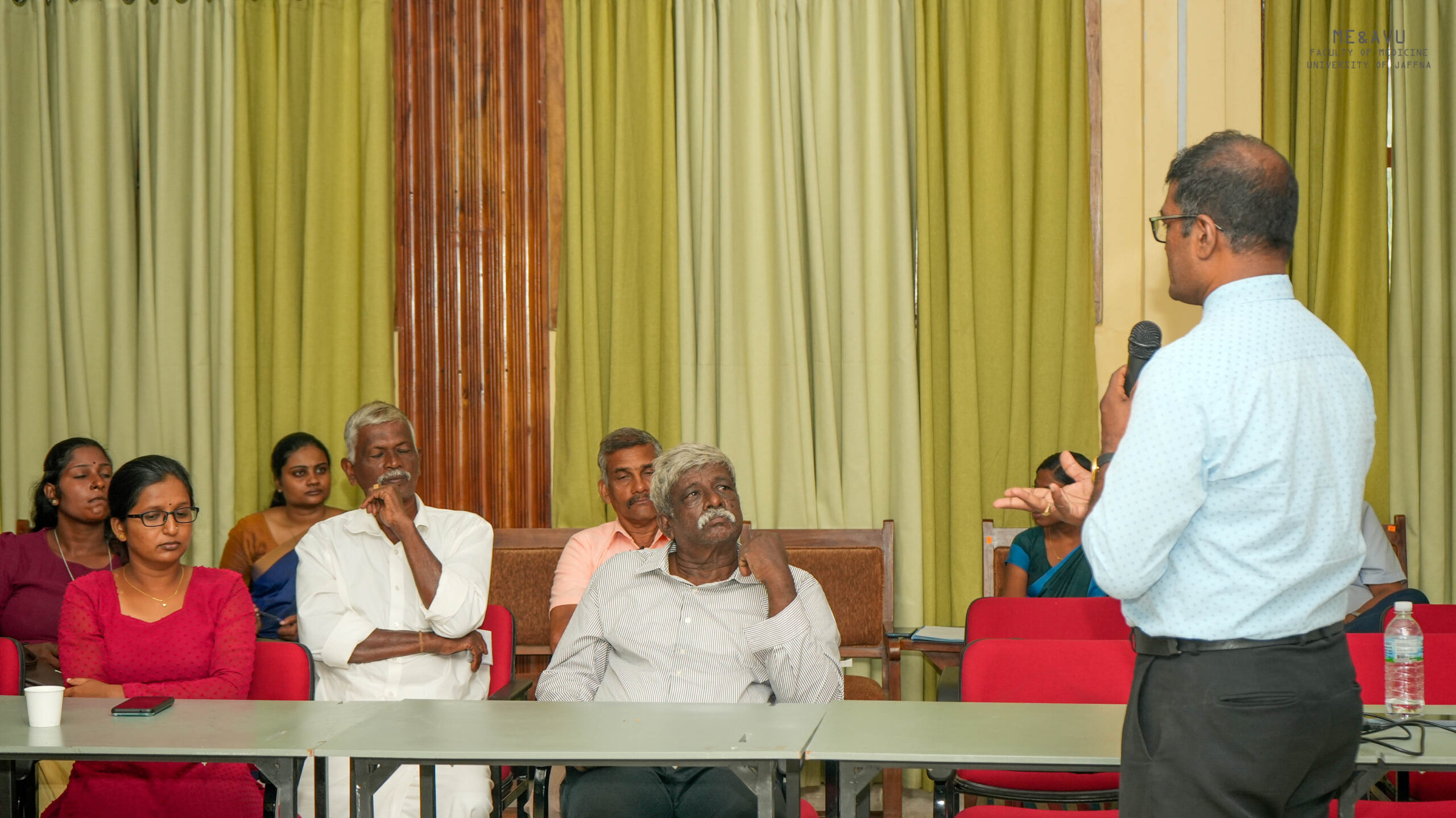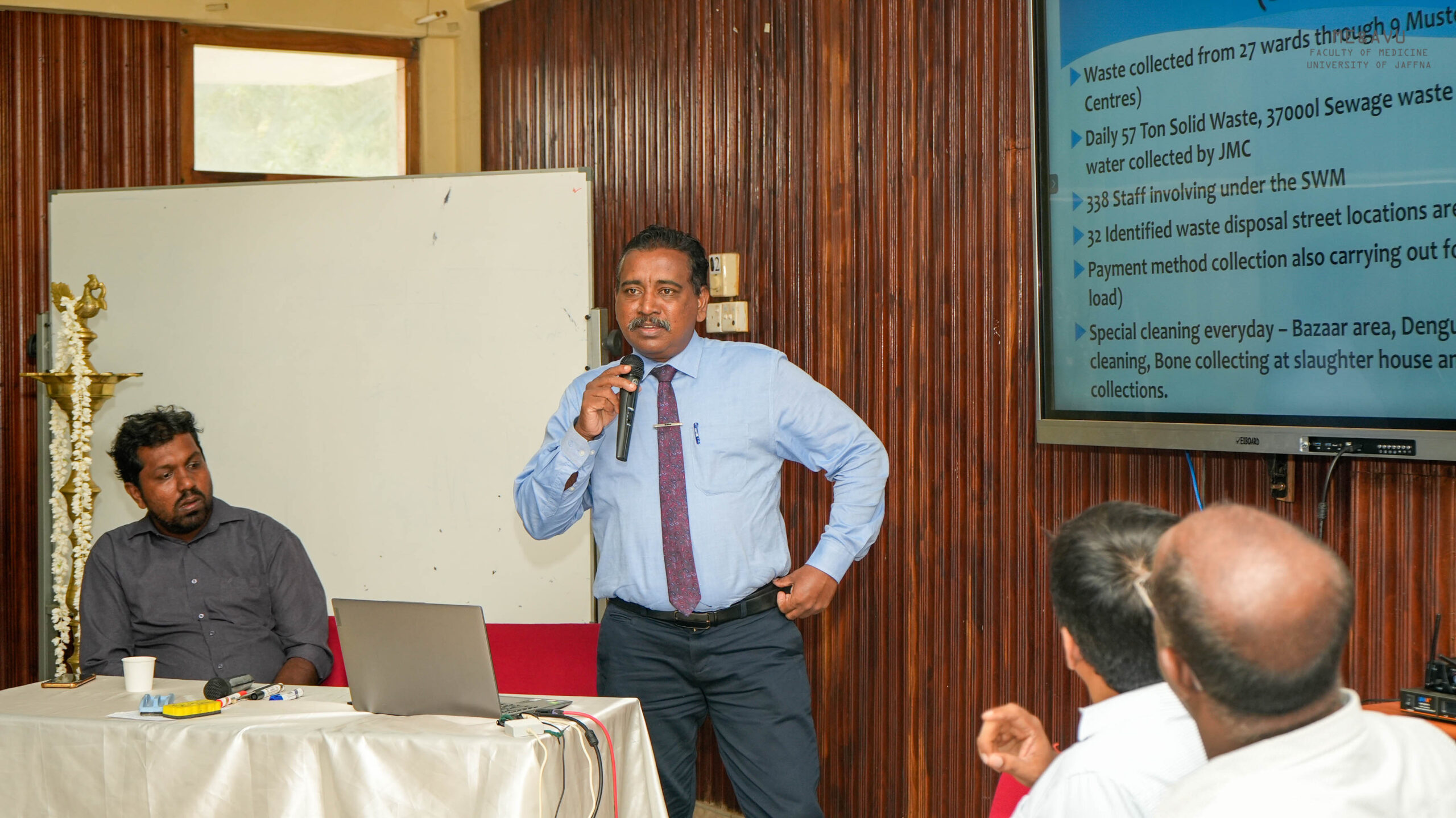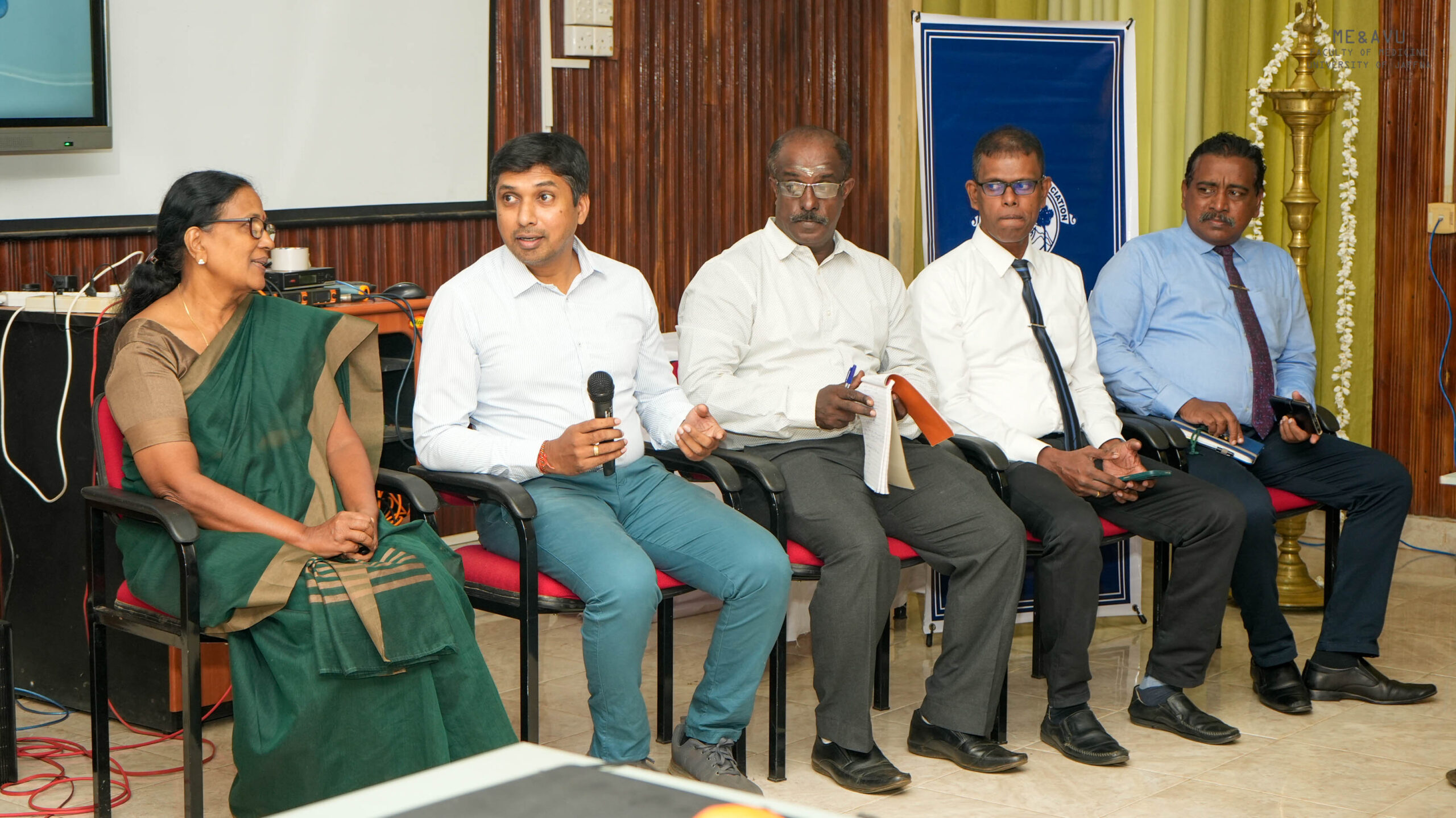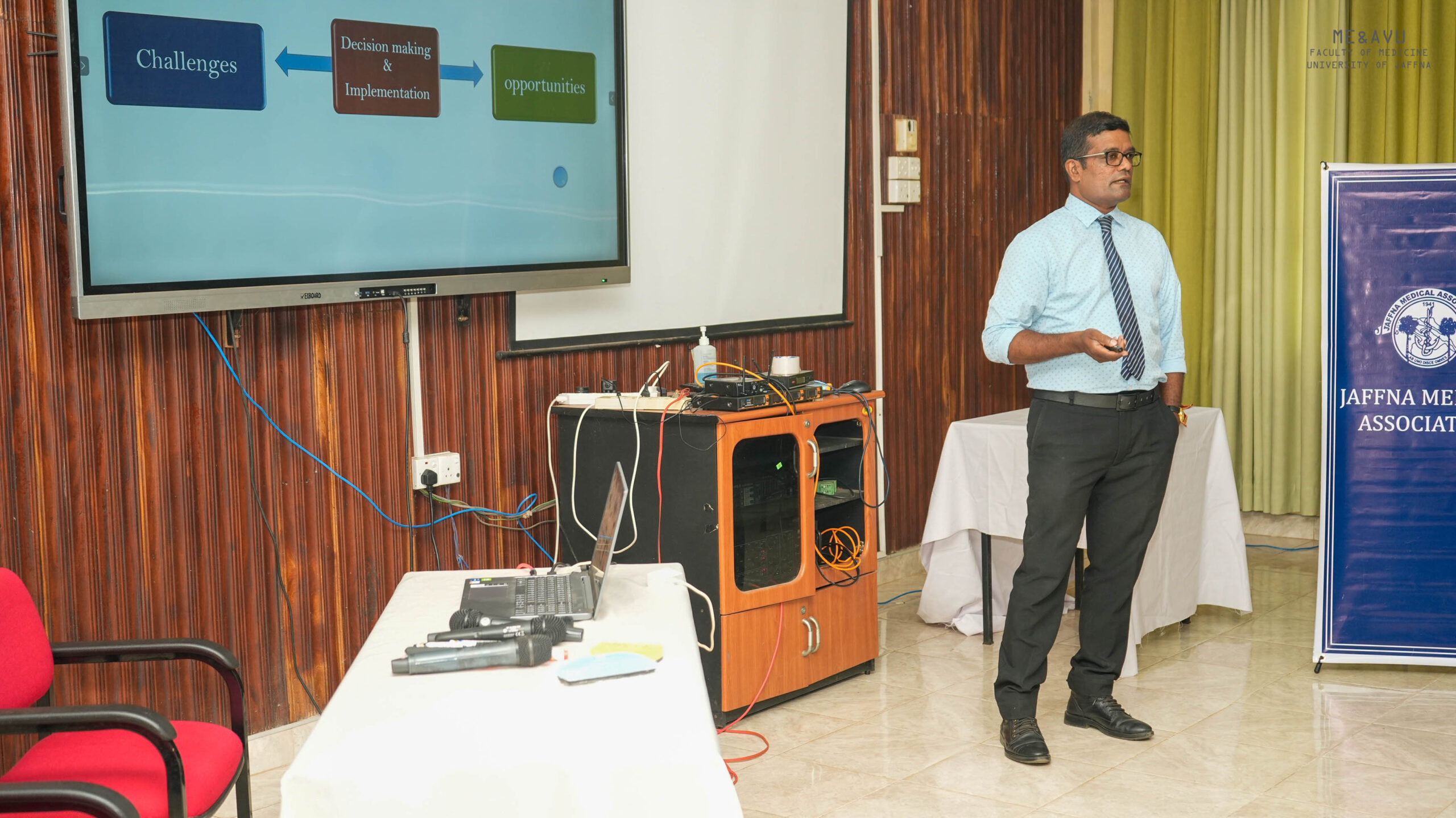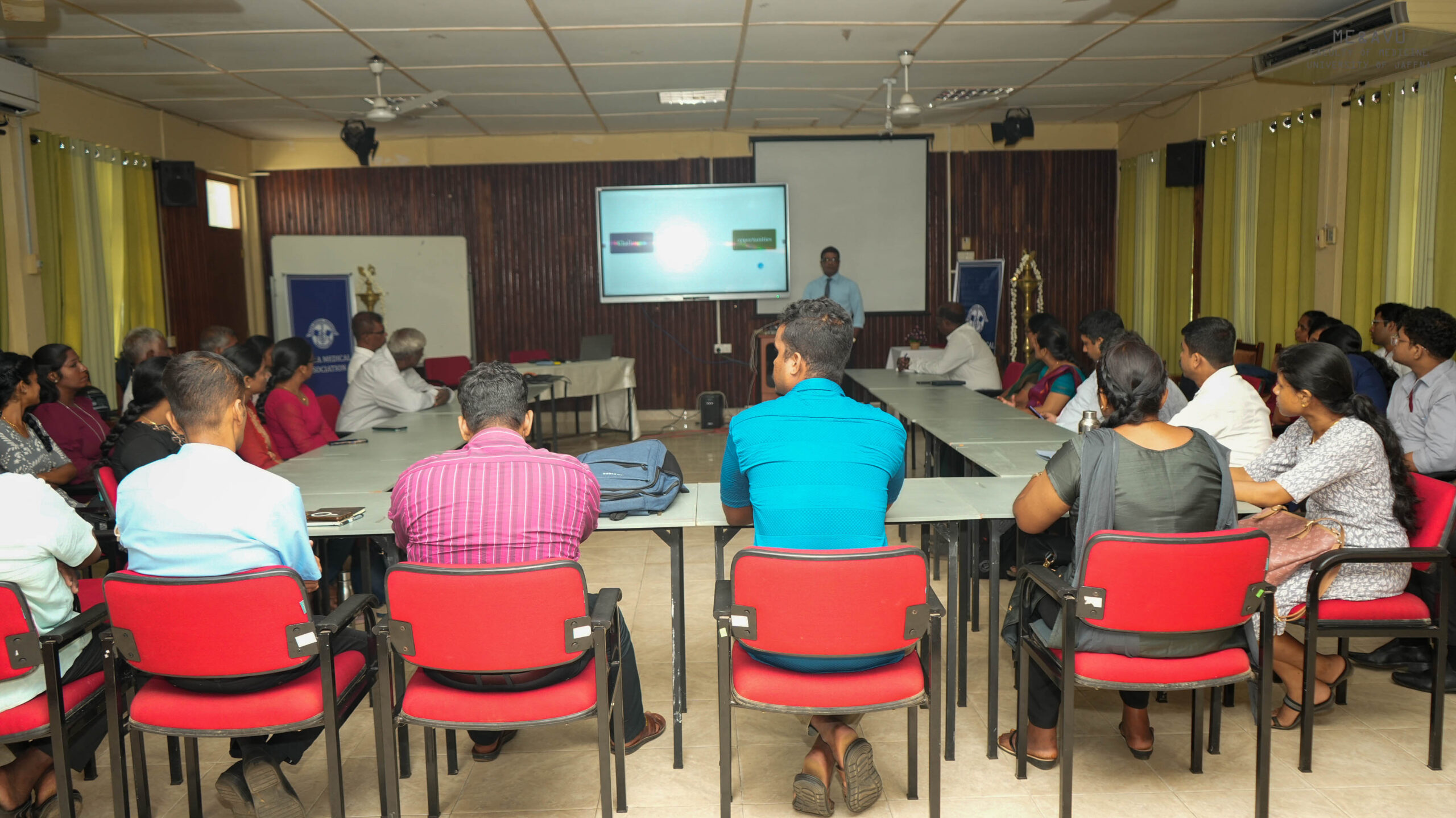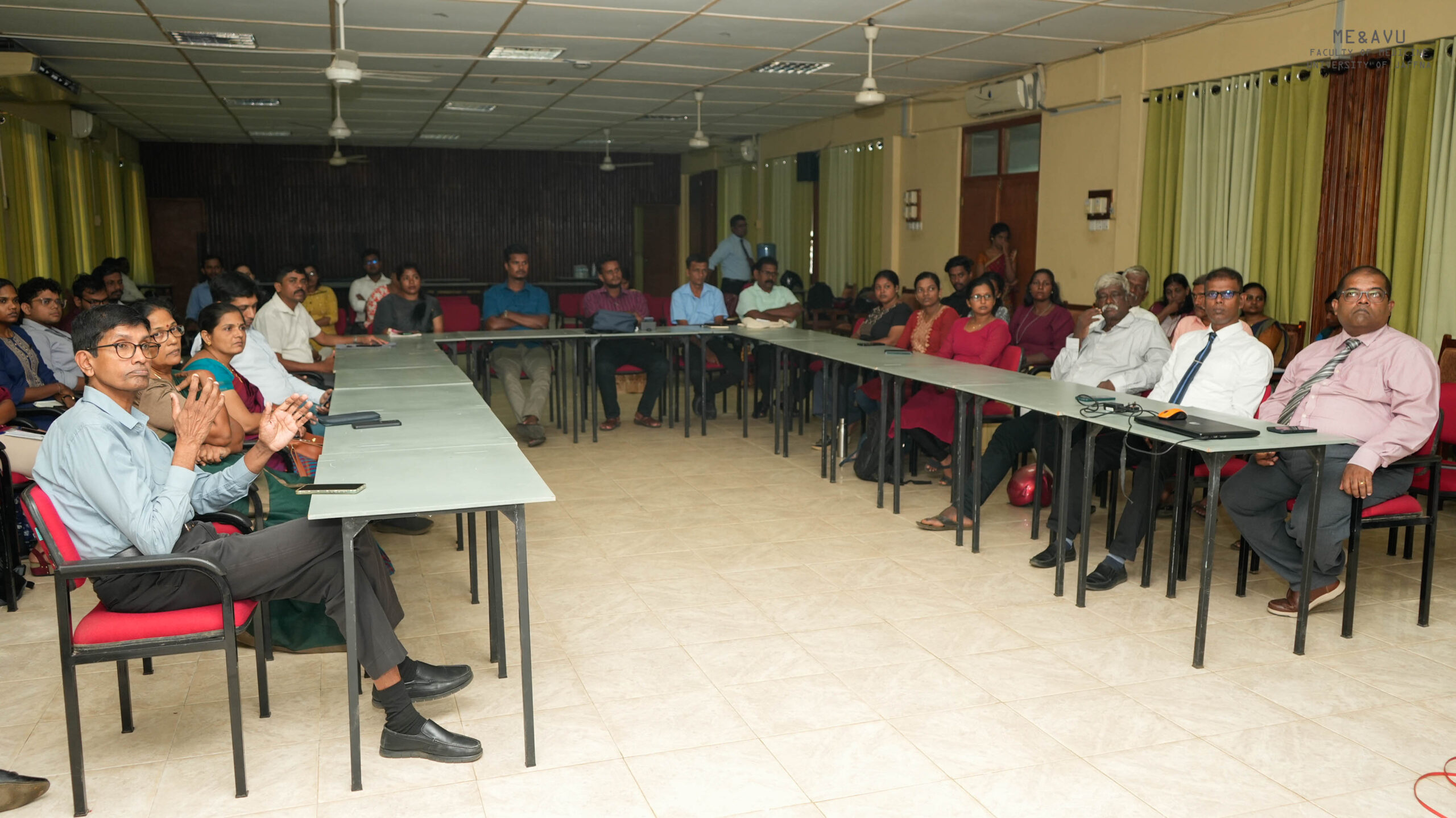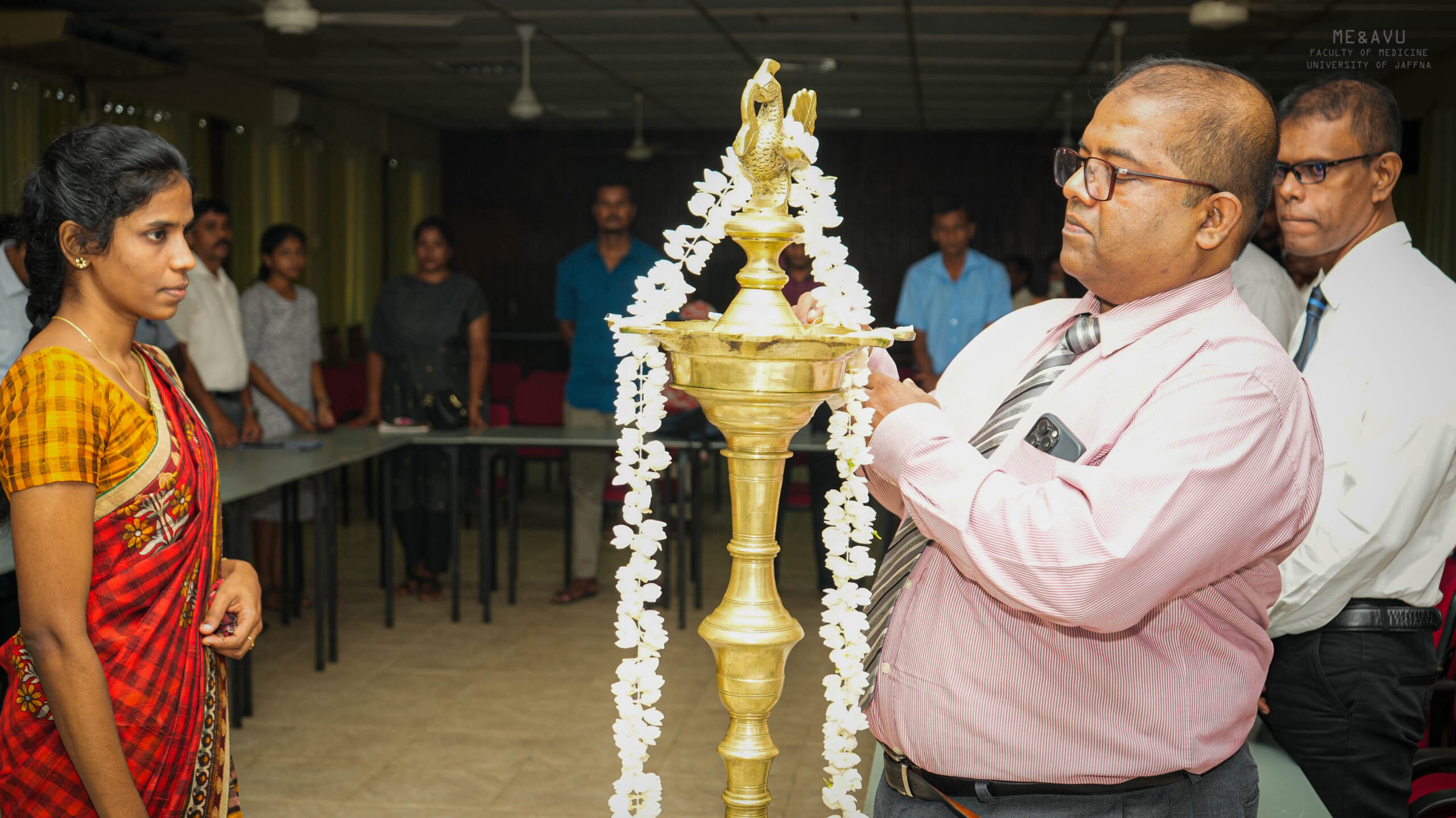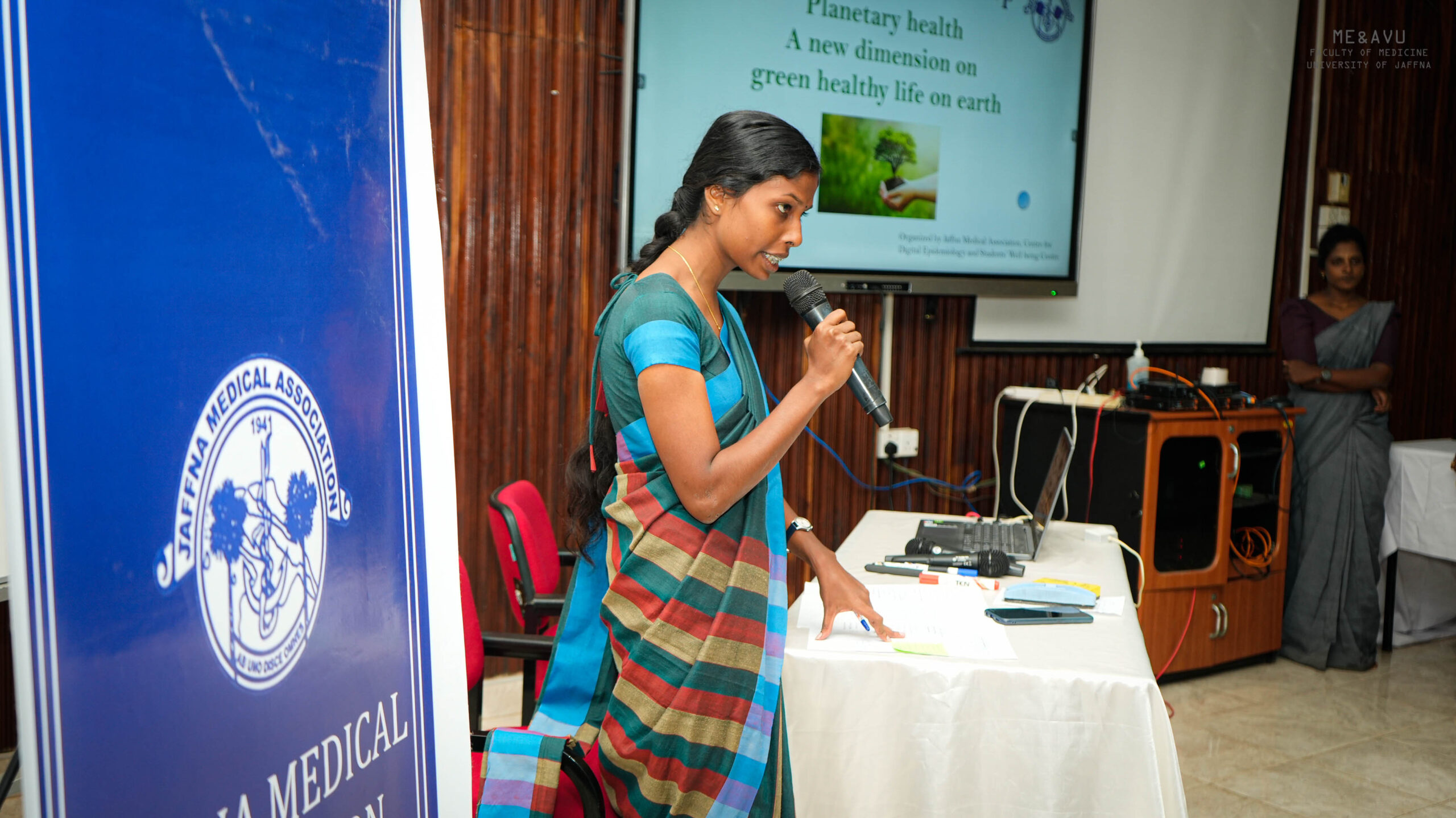A workshop titled “Planetary Health: A New Dimension for a Green, Healthy Life on Earth” was held on the 6th of September, 2024, at the Conference Hall of the Faculty of Medicine, University of Jaffna. The event was a collaborative effort, organized by the Jaffna Medical Association in partnership with the Centre for Digital Epidemiology and the Students’ Wellbeing Centre of the Faculty of Medicine, University of Jaffna.
The session was chaired by Dr. K. Guruparan, Head and Senior Lecturer at the Department of Obstetrics and Gynecology, Faculty of Medicine, and Honorary Consultant at the Teaching Hospital, Jaffna, alongside Dr. V. Sutharsan, President of the Jaffna Medical Association. The panel featured distinguished experts, including Dr. S. Premakrisha, Consultant Anaesthetist at Teaching Hospital Jaffna, Dr. S. Kumaran, Implementation Coordinator at the Centre for Digital Epidemiology, Professor G. Nalina from the Department of Agricultural Chemistry, Faculty of Agriculture, University of Jaffna, and Dr. B. Ketheesan, Head and Senior Lecturer at the Department of Civil Engineering, Faculty of Engineering, University of Jaffna. Key officials such as Mr. S. Kirusnenthiran, Commissioner of the Jaffna Municipal Council, and Mr. B. Balaganesan, Vice President of Kopay National College of Education, were also in attendance. Other participants included representatives from the Centre for Digital Epidemiology, the Students’ Wellbeing Centre, local farmers, the International Medical Health Organization, and medical students from the University of Jaffna.
Dr. K. Guruparan opened the session with an insightful discussion on the “multisectoral manuscript of planetary health”, Following this, Dr. S. Kumaran, Implementation Coordinator at the Centre for Digital Epidemiology, Faculty of Medicine, University of Jaffna, provided a brief but focused presentation on “keystrategiesfor implementing planetary health initiatives” Following the initial presentations, a dynamic paneldiscussion was conducted, where each expert shared their specialized insights on key aspects ofplanetaryhealth.
Dr. B. Ketheesan provided an in depth analysis of sustainable practices in energy and water management, highlighting innovative solutions for efficient resource use in urban and rural settings. Professor G. Nalina addressed the critical role of sustainable farming techniques, including organic farming methods and compost production, in promoting soil health and reducing environmental impact. Mr. S. Kirusnenthiran offered valuable insights into effective waste management strategies, emphasizing the importance of reducing, recycling, and reusing materials to minimize waste and environmental degradation in urban areas. Mr. B. Balaganesan discussed capacity-building initiatives, focusing on empowering communities and educational institutions to adopt sustainable practices, with an emphasis on training the next generation of environmental stewards.
Following that, Dr. Kumaran facilitated an open discussion on the future of promoting planetary health in our region. A key concern raised by the public was the need to ban harmful ripening chemicals and organic substances contributing to environmental degradation. Groundwater pollution was highlighted as a significant issue, with an emphasis on the responsibility of local governing bodies, such as the Pradeshiya Sabha, to address this concern. Additionally, the need to raise public awareness and bridge the existing information gap about these environmental challenges was stressed. Advancing policies and practices to tackle these issues is essential for ensuring a healthier and more sustainable future for the region. Prof. Nalina highlighted the advancing significance of organic composting, particularly emphasizing the benefits of using cow dung and Panchakavya liquid for enhancing sustainable agricultural practices.
Mr. Niruban shared his experience, emphasizing the importance of engaging the community in the implementation of biogas systems. He highlighted that raising public awareness and educating people about the benefits of biogas-such as reducing waste, providing renewable energy, and improving sanitation-are key to fostering acceptance and encouraging participation. Additionally, he stressed the need for careful financial planning. Securing funding or government subsidies can help cover the initial installation costs, while long-term savings in energy and waste management provide a solid return on investment.
Finally, Prof. R. Surenthirakumaran, Dean of the Faculty of Medicine, presented tokens of appreciation to the panelists as a gesture of gratitude.
